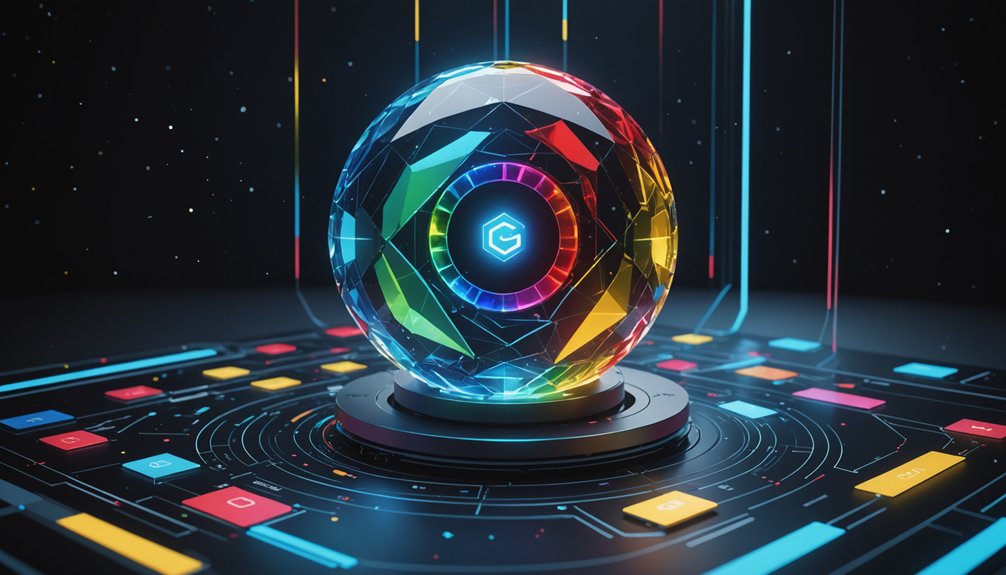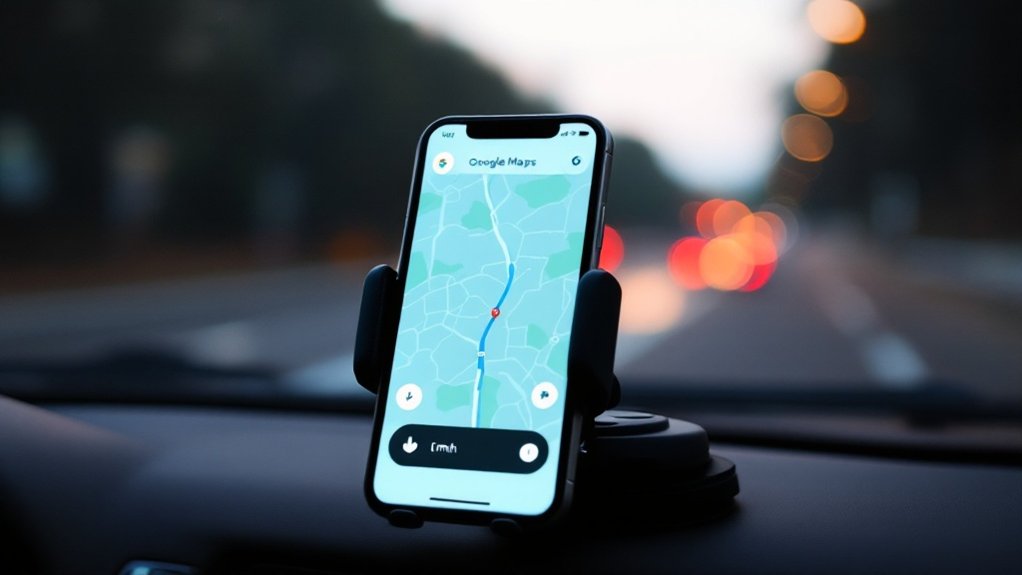Google Gemini is a multimodal AI system launched in December 2023. This next-gen model understands text, images, audio, and video simultaneously. Developed by Google and DeepMind, it comes in four variants: Ultra, Pro, Flash, and Nano. Gemini powers various Google products, from Search to Pixel phones. It translates languages, captions images, and summarizes content with impressive accuracy. The full scope of its capabilities might surprise you.

A technological breakthrough in artificial intelligence emerged in December 2023 when Google revealed Gemini, its next-generation family of generative AI models. Created through a massive collaborative effort between Google's AI labs, DeepMind and Google Research, this isn't just another AI—it's a multimodal powerhouse. It understands text, images, audio, and video. All at once. Pretty impressive, right?
Gemini's architecture is built on transformer-based neural networks, but souped up to handle long contextual sequences across multiple data types. Google didn't skimp on the processing power either, using their latest Trillium TPUs to make this thing fly. The training data? Vast and diverse. Multilingual. Multimodal. The works. Like most advanced AI systems, Gemini follows a rigorous data preprocessing phase to ensure optimal model performance. Similar to other modern LLMs, it leverages the powerful encoder-decoder architecture for enhanced language understanding.
The Gemini family comes in different flavors to suit various needs. Ultra is the heavyweight champion for complex tasks. Pro balances performance and scale. Flash is the speedster, optimized for low latency. There's even Nano, designed to run directly on your devices. Options, people. Google loves options.
What can Gemini actually do? A lot, frankly. It summarizes content from basically any source. Generates text based on prompts. Translates over 100 languages. Captions images. Answers questions about visual content. It even understands video frames. The applications seem endless.
Google's already integrating Gemini across its ecosystem. It's powering the Search Generative Experience. It's available through Google AI Studio and Google Cloud Vertex AI for developers. Google Apps are getting smarter. Even Pixel phones have Nano models embedded in them. Premium users can enjoy exclusive features like creating personalized Gems for specific tasks through the $20 monthly Google One AI Premium Plan. The premium version also offers advanced research capabilities with results typically delivered in under 10 minutes.
The focus on safety testing is notable—an acknowledgment that powerful AI brings real risks. Bias. Toxicity. The usual suspects. Google claims extensive testing to mitigate these issues.
Frequently Asked Questions
How Does Gemini Compare to GPT-4 in Real-World Applications?
Gemini outshines GPT-4 in multimodal tasks and real-time data access. Period.
It's superior for scientific research and content needing up-to-date info.
GPT-4, meanwhile, dominates in language understanding, code generation, and customer service. No contest there.
The choice between them? Depends entirely on your needs.
Gemini for multimedia and current data; GPT-4 for coding and language precision.
Each has their territory. Neither is perfect.
Can Individual Users Run Gemini Locally on Their Devices?
No, individual users can't really run Gemini locally. It's cloud-dependent.
Google offers Gemini Nano for mobile devices with limited functionality, but full capabilities require internet connection. The computational demands are too high for average personal setups.
Some developers use virtual environments and API keys to create a "semi-local" experience, but it's still connecting to Google's servers.
Fully offline? Not happening.
What Privacy Concerns Exist With Google's Gemini AI?
Google's Gemini AI raises several privacy red flags.
Conversations are collected, stored for up to three years, and reviewed by actual humans. Location data gets hoovered up too.
Anonymization? They promise it, but details remain fuzzy. Users shouldn't share confidential info—Google explicitly warns against it.
Data might feed into their other services and machine learning tech. Strict controls exist in theory, but security breaches remain a possibility.
Not exactly comforting.
Is Gemini Available in All Countries and Languages?
Gemini isn't quite the global citizen it aspires to be. Available in over 150 countries, but not everywhere.
Language support? Limited, though expanding. You'll find it in major markets like the U.S., U.K., and India.
Google's rolling it out gradually, maneuvering regulatory hurdles along the way. The company promises more languages and regions "soon" – typical tech-speak for "when we get around to it."
How Much Does Accessing Gemini's Advanced Capabilities Cost?
Gemini Advanced costs $20 monthly through the Google One AI Premium plan.
Not just AI—you get 2TB of cloud storage (worth $10 alone) and extra Google goodies.
There's a two-month free trial for the curious. The package includes VPN access, Google app integration, and bigger file handling capacity.
Pretty competitive pricing. ChatGPT Plus charges the same $20, while Microsoft's Copilot demands $30 per user.




